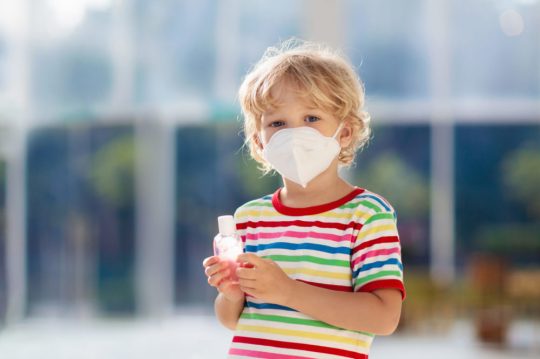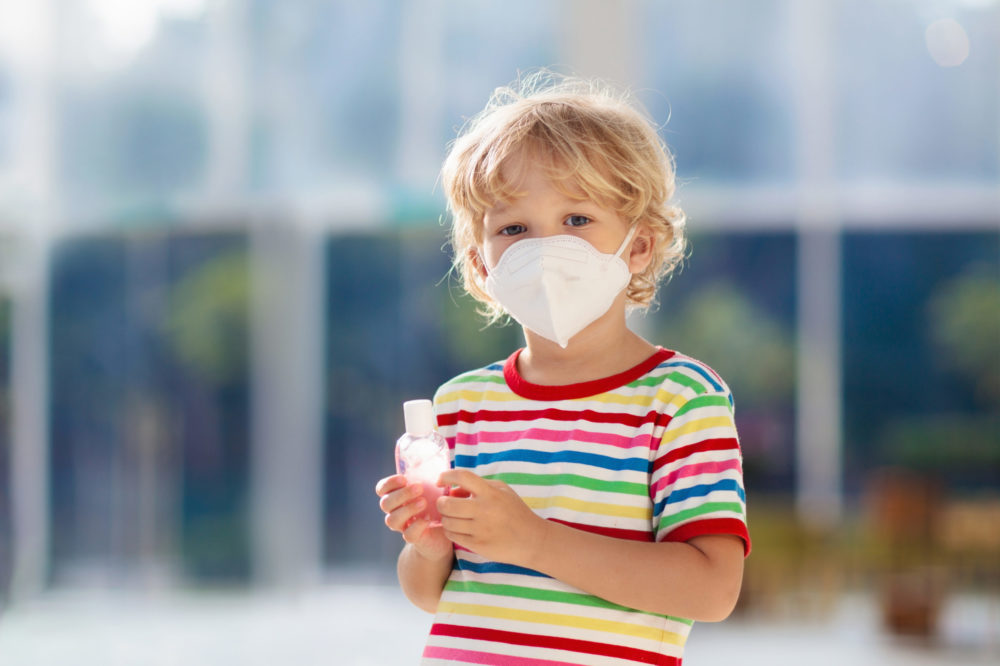As COVID-19 spread last year, sales of hand sanitizers skyrocketed, with consumers and businesses trying to prevent infection.
Also soaring were sanitizer-related calls to the Georgia Poison Center.
Here and nationally, more kids than usual have been ingesting these fluids, which are typically alcohol-based.
The state saw a 60 percent increase in poisoning calls related to sanitizer last year over 2019, says Gaylord Lopez, executive director of the Georgia Poison Center. The cases are continuing to rise so far this year, he adds.
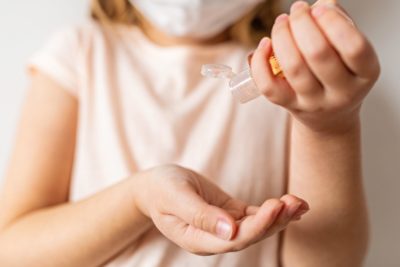
Most of the more than 1,000 calls were from parents alarmed about their young kids drinking the product. “Children are home, and adults have more of these products at home, in their cars, and outside,’’ Lopez says. Children 5 and younger were the age group with the most cases.
The health effects typically have not been catastrophic, and no deaths related to sanitizers have been reported in Georgia, Lopez says. But he notes, “Alcohol poisoning is real.’’
A container of hand sanitizer is 60 percent to 95 percent alcohol, meaning it has a higher alcohol concentration than hard liquor.
Swallowing just a tiny amount of sanitizer can cause alcohol poisoning in children, the American Academy of Pediatrics (AAP) says. Alcohol poisoning symptoms include sleepiness, low blood sugar, seizures and coma, and it can be fatal.
One Georgia child, Lopez says, had a blood alcohol level of .24 percent, which can be characterized as “very impaired.’’ (The current legal blood alcohol limit in Georgia is .08 percent for adult drivers who are not operating a commercial motor vehicle).
The .24 level can make the person experience stupor, confusion, feeling dazed, and disorientation, according to alcohol.org. At that level, standing and walking may require help, as balance and muscle control will have deteriorated significantly.

“We had a kid stumble [with a blood level that high] and hit their head against a curb,’’ causing trauma, Lopez says.
Hand sanitizer containers don’t have traditional safety caps to keep children from ingesting the liquid, he notes.
A backup to soap and water
The best way to prevent the spread of infections and decrease the risk of getting sick is by washing your hands with plain soap and water, the CDC says. But if soap and water aren’t available, CDC has recommended consumers use an alcohol-based hand sanitizer, one that contains at least 60 percent alcohol.
Heeding that advice, consumers eagerly snapped up hand sanitizing products as the pandemic struck last year.
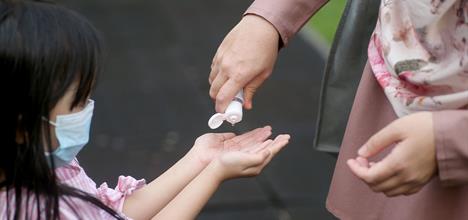
U.S. sales of hand sanitizer jumped almost sevenfold, to $1.3 billion, for the 52 weeks ending Jan. 2 compared with the same period a year earlier, the Wall Street Journal reported. That increase, which doesn’t include sales to businesses and institutions, is far higher than the jump in sales for other products in the pandemic.
Surging sales led to widely reported shortages of hand sanitizer early in the pandemic. Manufacturers quickly increased production, and the sanitizers became plentiful again. But by that time, given the increased public demand, there was perhaps more hand sanitizer in the average home than ever before.
Nationally in 2020, there were more than 20,000 exposures to hand sanitizer among children under 6, an increase of 40 percent from 2019, according to data from the American Association of Poison Control Centers (AAP), the New York Times reported. Most of these exposures involved children 2 and younger who had ingested the sanitizer.
In many cases, no symptoms were recorded, Dr. Justin Arnold, the medical director of Florida Poison Information Center Tampa, told the Times. But in other instances, children experienced vomiting, coughing and mouth irritation.
The alcohol listed as an ingredient in most hand sanitizers is a variety called ethanol. But some children and adults also have been poisoned after using hand sanitizer that contain methanol (also called wood alcohol, methyl alcohol, or methylated spirits), the AAP says.
Methanol should not be used in hand sanitizers at all, and those that contain it were recently recalled. Methanol is toxic if swallowed or after repeated use on skin. It may cause nausea, vomiting, headache, blurred vision, blindness, seizures, coma, permanent damage to the nervous system, or death.
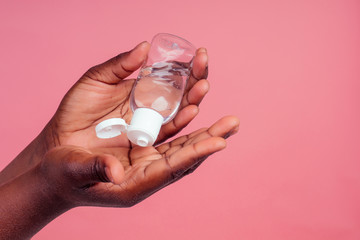
As for ordinary, alcohol-based hand sanitizer, the FDA says there is no need for concern if children eat food with their hands or lick their hands after using it. But if they ingest enough of it, they can get “dangerously drunk,” Dr. Diane Calello, a pediatric toxicologist and the executive and medical director of the New Jersey Poison Center, told the Times.
A child weighing 20 pounds who drinks a tablespoon or two could become intoxicated, Dr. Calello said, and appear “a little drunk.”
“As a dose gets higher, they can get very sleepy and have trouble breathing, just as we see with severe adult alcohol intoxication,” she added.

Dr. Maneesha Agarwal, pediatric emergency department physician at Children’s Healthcare of Atlanta, said Thursday that Children’s has seen some of these ingestion cases in its ERs.
Symptoms can include altered mental states, confusion, extreme sleepiness or lethargy, and nausea and vomiting, she says. Some kids can also arrive in the ER “like they’re drunk or intoxicated.’’
Doctors may take a blood sample, and have to give glucose to a child whose blood sugar has dropped, or administer IV fluids.
Agarwal says she isn’t aware of any serious medical complications in these cases.
Parents and those around small children should store hand sanitizers away from the easy reach of children, she adds. These incidents “can happen in the blink of an eye to the most conscientious of parents.’’
The American Academy of Pediatrics urges parents not to forget about travel-size bottles of sanitizer in purses, diaper bags, backpacks and cars, the group says. Parents and caregivers also should supervise children ages 5 and younger when they use hand sanitizer.
Call 911 right away if your child has collapsed, is having a seizure, is having a hard time breathing or can’t wake up after using or swallowing hand sanitizer products.
If you have questions about hand sanitizer product safety, call the Georgia poison control center at 1-800-222-1222 or visit www.georgiapoisoncenter.org
